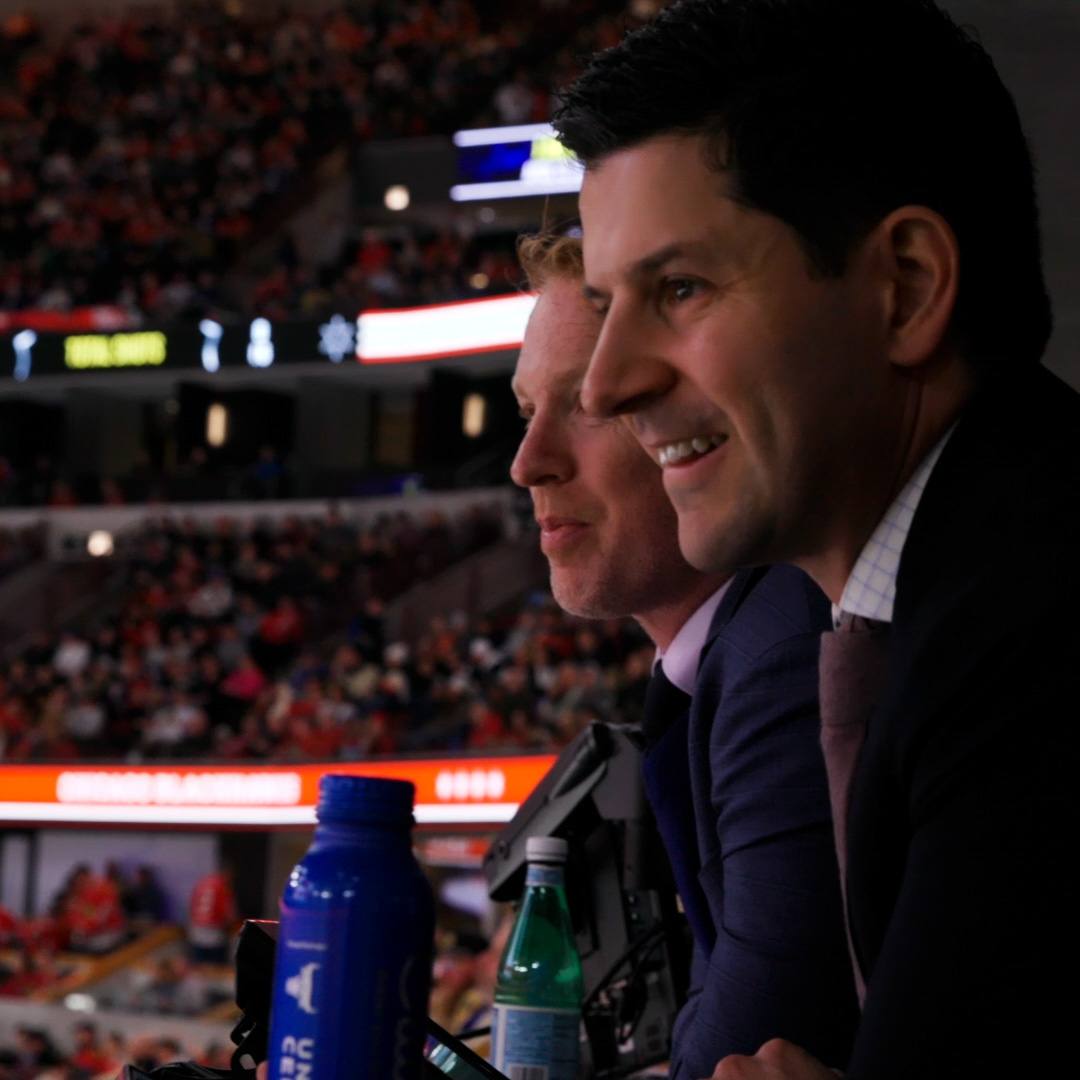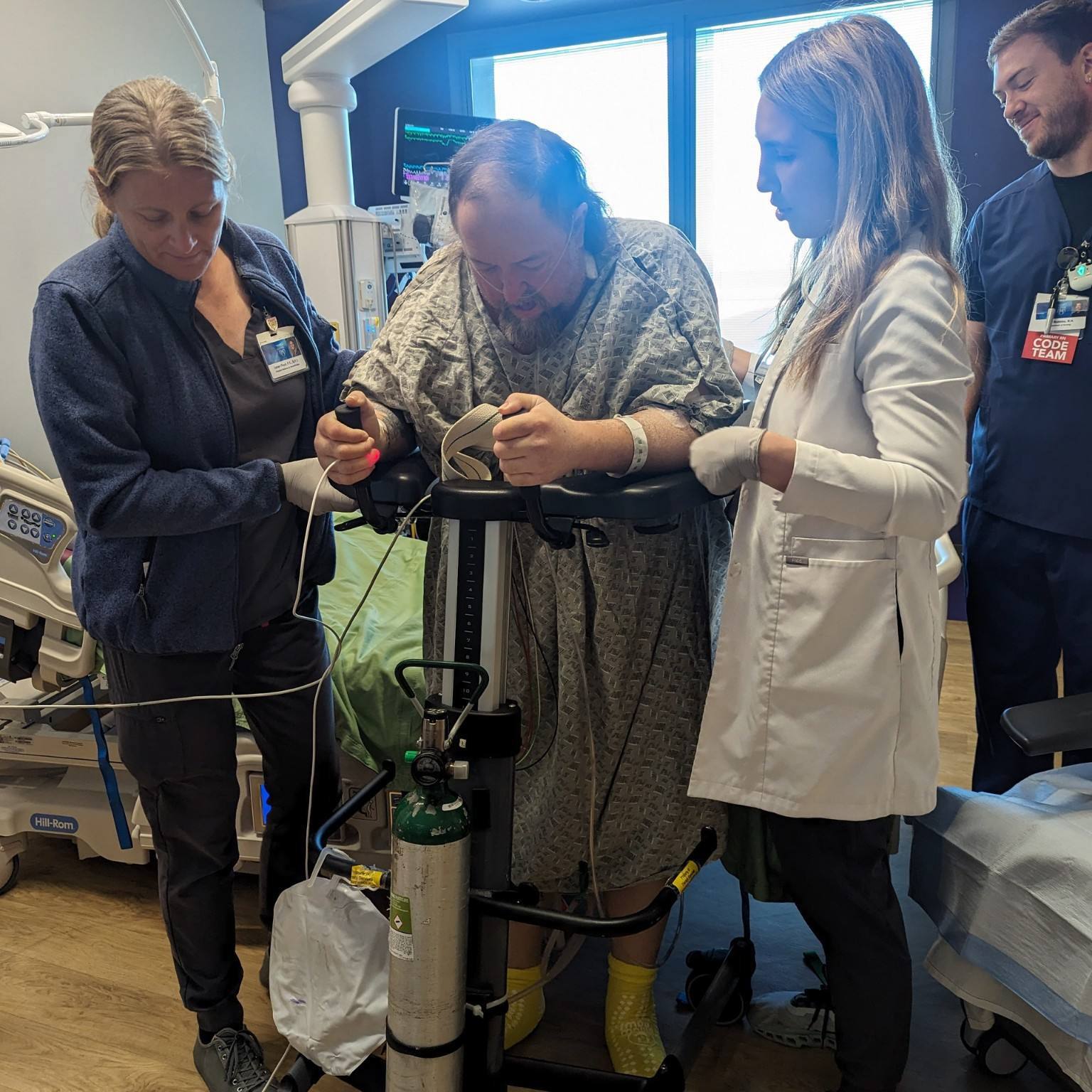After surviving two separate lung transplant procedures in 2005 and 2008, musician Larry Rawdon is sharing new ways of healing through music with other patients at Mayo Clinic in Florida. It was, after all, music that led him to Mayo Clinic and aided in his recovery after he was diagnosed in 2002 with idiopathic pulmonary fibrosis.
Prior to coming to Mayo Clinic, Rawdon had little hope of his condition improving. But a chance meeting in 2005 at a music festival with cardiothoracic surgeon Octavio E. Pajaro, M.D., changed his outlook on his condition and created hope for Rawdon and his family.
“Instruments have had a significant impact on my life that extends beyond the music itself,” says Rawdon. “It is actually what started my relationship with Mayo Clinic and has had a profound role in changing my life.”
A lover of all things music, Rawdon is drawn to different musical instruments. His career as a professional cellist had landed him on Broadway, and he experimented with a number of other instruments. So when his wife, Katie, was introduced to the benefits of playing the harmonica for pulmonary medicine patients, she knew she had found the perfect Christmas gift for her husband.
 “During Christmas of 2007, I received two harmonicas from my wife and immediately started to teach myself how to play by watching YouTube videos,” Rawdon says.
“During Christmas of 2007, I received two harmonicas from my wife and immediately started to teach myself how to play by watching YouTube videos,” Rawdon says.
His passion for sharing the harmonica comes from his experience of rehabilitation with and without the harmonica.
After his second lung-transplant procedure in 2008, Rawdon wasted no time and picked up his harmonica to supplement his prescribed pulmonary rehab exercises. He noted significantly positive results.
Rawdon noticed that when playing his harmonica for 10 minutes during his incentive spirometer testing, his lung capacity scores were substantially elevated after he played the harmonica.
Rawdon shared his personal success with Cesar Keller, M.D., of Florida's Transplantation Services Department.
“I personally think that his technique adds and complements very well the overall recovery process of lung transplantation,” says Dr. Keller. “It combines excellent respiratory therapy coupled with the fun and immediate feedback that you get by playing a musical instrument.”
The profound impact of playing the harmonica led Rawdon to share his love for the instrument and its rehabilitative capabilities with his peers in the Jacksonville Heart and Lung Transplant Group. In February, Rawdon began teaching harmonica lessons to his fellow patients as a supplemental pulmonary rehab exercise. While the lessons are fun and engaging, the lessons come with benefits for recovering pulmonary patients.
“I am convinced that for lung transplant patients, playing the harmonica can be considered [as] a piece of legitimate breathing exercise equipment,” Rawdon says. "In addition to everything else the harmonica has become to me, it is especially gratifying when I hear from transplant peers that they think they are benefiting from using the harmonica now, too."
Rawdon has worked diligently to help gather the resources to develop the music class as a regular offering for his peers. Rawdon partnered with Chrys Yates, coordinator of the Florida Center for Humanities in Medicine, to help engage support from Mayo Clinic staff.
Rawdon independently contacted Hohner Inc., a large harmonica manufacturer, to help supply harmonicas for his peers. After Rawdon shared his story about rehabilitation using the harmonica with the president and the philanthropy associate at Hohner Inc., the company offered to donate harmonicas to Florida’s Humanities in Medicine program to supply instruments for Rawdon’s classes.
Respiratory therapy is invaluable in the recovery process for pulmonary patients, says Dr. Keller. “Following lung transplantation, the path to full recovery largely depends on the transplant recipient to regain full functional capacity following the debilitating process of a chronic and progressive lung disease further complicated by the major physiologic impact of a major surgery like lung transplantation,” he says. “Therefore the roles of physical therapy, exercises to regain physical endurance and stamina, as well as breathing exercises to regain diaphragmatic and respiratory muscle are vital in the recovery process.”
Rawdon’s first class in February was the largest support group meeting to-date. The positive patient response has Rawdon teaching his second harmonica class starting at 1 p.m. on Tuesday, July 30.
-----
Related Articles









